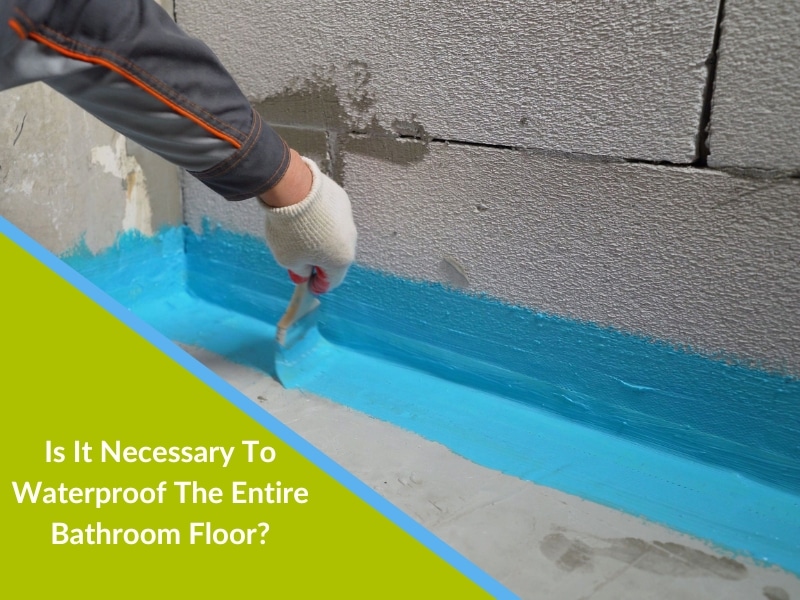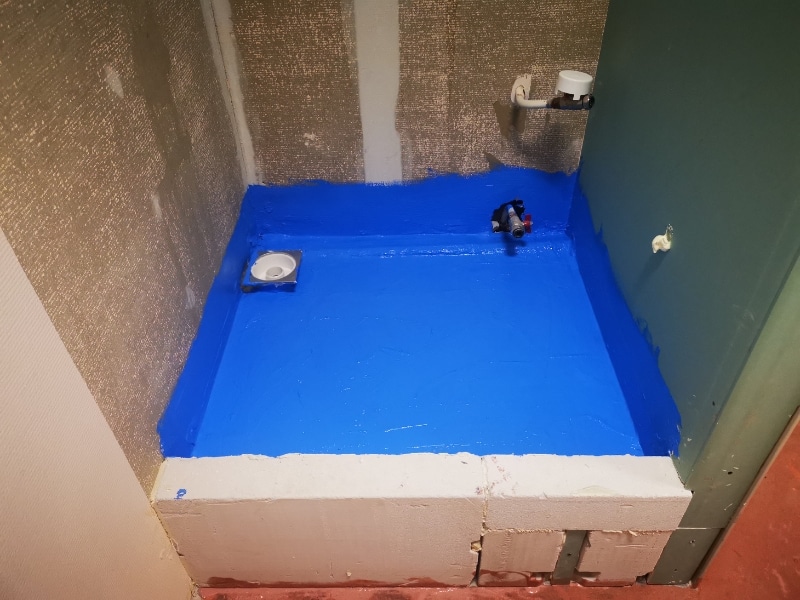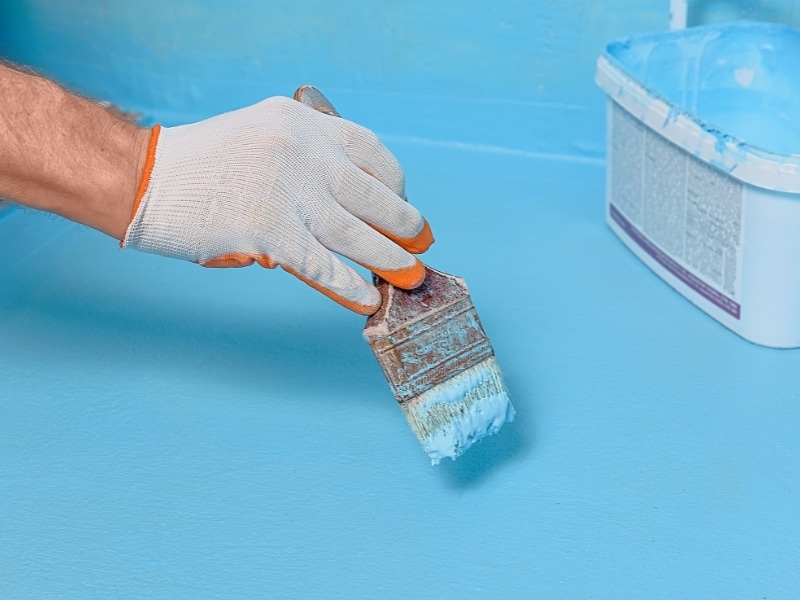Is It Necessary To Waterproof The Entire Bathroom Floor?

When it comes to bathroom renovations or repairs, one of the most common questions homeowners have is whether it’s necessary to waterproof a bathroom floor entirely. After all, the bathroom is one of the most water-prone areas in your home. The last thing you want is to face significant water damage or leaks down the track. Waterproofing can protect your bathroom and the rest of your home, but is it necessary to cover every inch of your bathroom floor? This article will explore the importance of waterproofing a bathroom floor, as well as the benefits, risks, and common mistakes to avoid.
Why is waterproofing essential for bathroom floors?
Waterproofing a bathroom floor is vital because it safeguards your home from potential water damage. Bathrooms are naturally exposed to moisture, from showers to baths and even just daily humidity. Without proper waterproofing, water can seep into the floor and walls, leading to costly repairs, mould, and structural damage. Waterproofing not only prevents leaks but also maintains the integrity of your flooring materials, helping them last longer and resist damage from prolonged exposure to moisture.
What are the benefits of completely waterproofing a bathroom floor?
Fully waterproofing your bathroom floor offers several advantages. Here are the key benefits:
- Prevents water damage: It stops water from seeping into subfloor areas, preventing rotting wood or pipe corrosion.
- Reduces mould growth: Waterproofing controls humidity, helping to keep your bathroom dry and minimising mould and mildew.
- Increases property value: A waterproofed bathroom is more appealing to buyers, enhancing your home’s value.
- Long-term durability: Proper waterproofing ensures a longer-lasting floor with fewer repairs needed.
- Protects adjacent rooms: It prevents water from leaking into adjoining rooms, safeguarding flooring, walls, and furniture from damage.
Should the entire bathroom floor be waterproofed, or just specific areas?
Some homeowners wonder if they should focus on waterproofing wet areas or the whole floor, like around the shower or bathtub. The answer depends on water flow and moisture exposure. Here’s a breakdown:
- The entire bathroom floor: The waterproofing floor as a whole is ideal for bathrooms where water is used extensively, such as wet rooms or large, open layouts.
- Shower or bathtub area: In smaller bathrooms, waterproof just the shower or bathtub area, where water exposure is most concentrated. However, this may leave other parts of the toilet vulnerable to leaks.
- Around the toilet: It’s essential to waterproof around the toilet area, as leaks from pipes or overflows can cause hidden water damage.
- Floor drains: If your bathroom has a floor drain, ensure it’s properly waterproofed to prevent moisture leakage.

What risks arise from not waterproofing a bathroom floor?
Neglecting to waterproof your bathroom floor can lead to several risks, including:
- Water damage: Water can penetrate floorboards, causing warping, rotting, or degradation, weakening the room’s structure.
- Mould and mildew growth: Moisture promotes mould, leading to health issues and property damage.
- Flooring deterioration: Tiles, timber, and other materials can crack, fade, or peel from constant water exposure.
- Increased repair costs: Delaying waterproofing can lead to costly repairs down the line.
- Decreased property value: Visible water damage or mould can lower your property’s value and deter potential buyers.
How does waterproofing a bathroom floor prevent leaks and water damage?
Waterproofing a bathroom floor is essential for preventing leaks and water damage. Here’s how it works:
- Seals the Floor: Creates a barrier to prevent water from seeping through cracks or porous materials.
- Reduces Moisture Absorption: Materials like membranes or sealants keep the floor dry by reducing moisture absorption.
- Controls Water Flow: Directs water away from critical areas, preventing damage to subfloors and walls.
- Prevents Staining: Stops stains and discolouration caused by water exposure, keeping your bathroom looking clean.
How does leak-proofing a bathroom contribute to long-term durability?
Waterproofing is essential for ensuring the long-term durability of your bathroom floor. Here’s how:
- Protects structural integrity: Waterproofing safeguards your bathroom’s structural components, such as the subfloor and walls, from moisture damage that could compromise stability.
- Increases lifespan: By preventing water damage, waterproofing helps your bathroom floor last for many years without needing repairs.
- Prevents future costs: A well-waterproofed bathroom can save money on repairs and replacements, making it a wise long-term investment.
- Reduces wear and tear: Whether you’re replacing bathroom tiles or renovating, waterproofing minimises moisture damage to materials like tiles and grout, preserving your floor’s appearance and strength.

What are the common mistakes to avoid when leak-proofing a bathroom?
Waterproofing a bathroom requires precision. Here are common mistakes to avoid:
- Using inappropriate materials: Choose high-quality products specifically designed for wet areas.
- Skipping preparation: Clean and prime surfaces before applying the waterproofing membrane for proper adhesion.
- Not sealing the edges: Ensure edges where the floor meets the walls are sealed to prevent water seepage.
- Incorrect application: Apply waterproofing in layers, following manufacturer instructions for best results.
- Rushing the process: Allow adequate time for curing; rushing can leave areas vulnerable to leaks.
How does professional waterproofing ensure a leak-free bathroom?
Professional waterproofing services ensure that your bathroom is completely sealed and leak-free. Here’s why it’s essential to hire a professional:
- Expertise and experience: Professionals have the skills and knowledge to handle all aspects of waterproofing, from surface preparation to applying high-quality materials.
- Proper techniques: Professional waterproofing ensures that suitable materials are used and applied in the correct layers and order.
- Peace of mind: Hiring a professional gives you peace of mind, knowing that your bathroom is fully waterproofed and protected from leaks and water damage.
- Quality assurance: Professional services often come with warranties and certificates, offering added protection for your bathroom.
Ensure a leak-free bathroom with waterproofing
Waterproofing your entire bathroom floor is not just a preventative measure; it’s an investment in the longevity and safety of your home. By ensuring that water doesn’t seep into critical areas, you can prevent water damage, reduce maintenance costs, and protect your property value.
At Leaking Shower Repairs Sydney, we understand the importance of thorough waterproofing. With over 20 years of experience, our expert team delivers reliable, high-quality services that guarantee your bathroom stays dry and secure. If you’re looking to protect your bathroom from water damage and improve its durability, get in touch with us today. Let us help you create a safer, more resilient space. Reach out to Leaking Shower Repairs Sydney today to safeguard your home from leaks and water damage.
